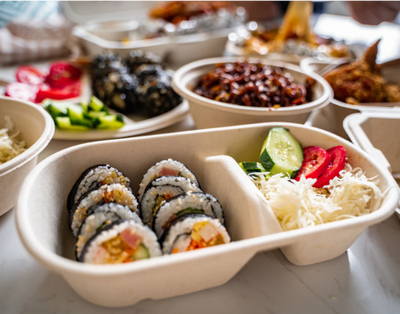For small businesses, local retail shops, and e-commerce startups, establishing a brand identity rooted in sustainability is the ultimate differentiator. Customers today don't just buy a product; they buy a brand's mission. And increasingly, that mission must include a commitment to being a plastic free business.
Achieving this status might seem overwhelming—especially when faced with cost comparisons against conventional materials. However, adopting a plastic-free model is not an expense; it’s an investment that reduces waste, cuts future costs, and builds fierce customer loyalty.
Here is a practical guide to the three pillars that define a successful, plastic free business and how to integrate them into your operations, with an emphasis on sustainable packaging.
Pillar 1: Master the Customer-Facing Experience (The Last Mile)
This pillar focuses on all the visible points of contact where your brand interacts with the customer, and where plastic traditionally sneaks in.
-
The Shopping Bag Statement: Start with the obvious. Eliminate all plastic bags. Instead, offer high-quality, reusable tote bags. EQUO’s canvas tote bags are perfect for this. They serve as immediate, durable packaging while also acting as walking billboards for your brand's commitment, instantly communicating a plastic free business ethos.
-
The Point-of-Sale Audit: Look at the small items. Swap plastic receipt paper for digital receipts or recycled paper. Replace plastic tape with paper tape. Ensure your labeling and promotional materials (like small tags) are recyclable or compostable.
-
Refuse to Buy Plastic for Resale: If you sell small items, eliminate plastic display containers. Use natural materials like wood, metal, or glass. Every product you stock should align with your mission.
Pillar 2: Perfecting the Supply Chain (Sustainable Packaging)
For retailers, the supply chain and packaging are where the biggest environmental footprint often lies. Sustainable packaging requires diligence and a willingness to challenge your suppliers.
-
The Shipping Box Zero: Ensure your primary shipping boxes and void fill (packing peanuts or bubble wrap) are paper-based or compostable. Look for products certified by organizations like the Forest Stewardship Council (FSC).

-
Internal Product Wraps: This is often the hardest area. If your supplier uses plastic wrap to bundle products, push back. Can they use paper bands, cardboard dividers, or compostable film instead?
-
Embrace Compostable Solutions: For products that require some level of protection or sanitation (like food or cosmetic items), certified compostable pouches or films are essential. Crucially, educate your customers on how to compost these items. Your sustainable packaging is only truly sustainable if its end-of-life is planned for.
Pillar 3: Transparency and Education (Building Loyalty)
A commitment to a plastic free business is meaningless if your customers don't know about it or don't understand why you made the switch.
-
Tell the Story: Use your website and in-store signage to explain your plastic-free journey. Detail why you chose a sugarcane fork over a biodegradable plastic one, or why you use a coffee ground stirrer. When customers understand that EQUO’s products are made from upcycled waste streams, it justifies the value and price.
-
Focus on the ‘Why’ Behind the Product: Use your blog to educate customers. Articles like "Biodegradable vs. Compostable" or "The Coffee Ground Revolution" serve as your educational tools, cementing your brand as an authority on ethical consumption.
-
Offer Incentives for Reuse: Reward customers who bring their own mugs, containers, or EQUO tote bags with a small discount or loyalty point. This actively encourages the reusable products for everyday use mindset.
By tackling all three pillars—customer interface, supply chain, and transparency—small retailers can effectively become a plastic free business, transforming a complex environmental challenge into a powerful, loyalty-driving competitive advantage in the modern retail landscape.


